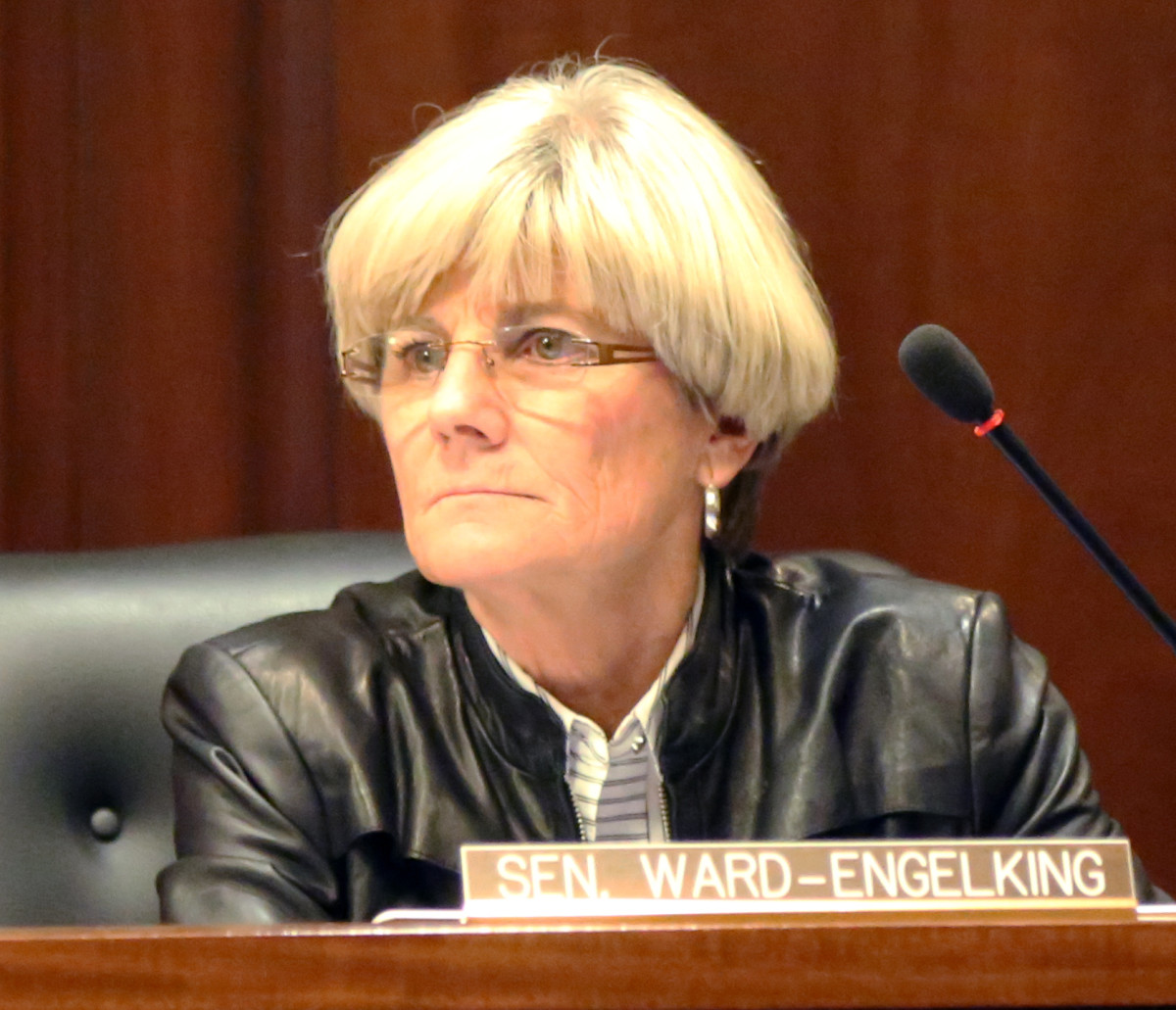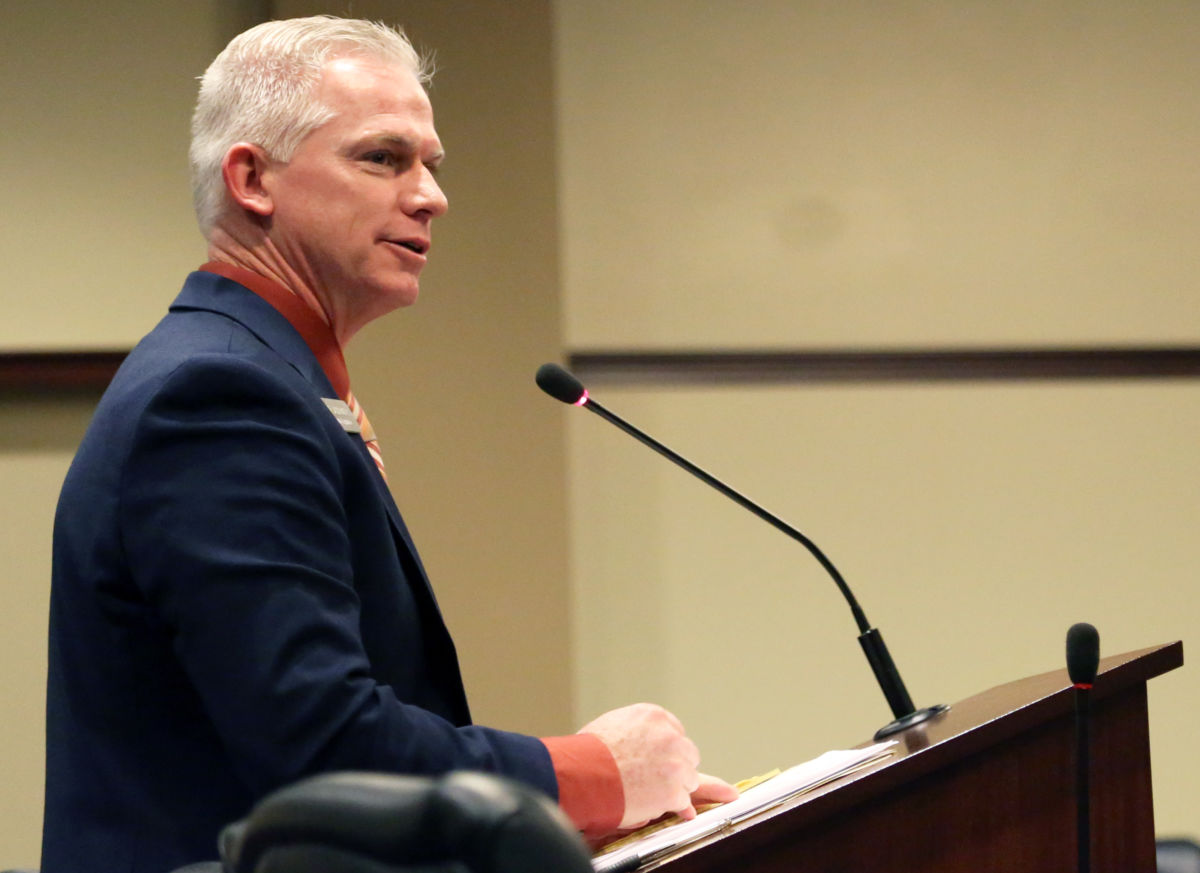Idaho’s science standards will not mention climate change. At least for the next year.
On a party-line vote, the Senate Education Committee sided with their House counterparts and approved a temporary set of science standards. But committee Republicans rejected five of the 375 standards that came before them — deleting references to climate change.
“I think you have to take the best of the situation before you,” said Sen. Jim Guthrie, R-Inkom, moments before Monday afternoon’s vote.
The situation was something of a showdown between the Senate and House education committees — and a desire to pass some form of science standards in 2017.
The House Education Committee rejected the climate change references on Feb. 9, with lawmakers saying they wanted the standards to reflect both sides of the debate on the topic. The House vote left the Senate committee with few options. Under the Legislature’s arcane rulemaking process, the two committees had to agree on science standards language. If the committees had failed to reach an agreement, all of the science standards would have died — and schools would have had to go back to using standards written in 2001.

After a two-hour public hearing Thursday, Senate Education chairman Dean Mortimer put off a vote on the standards. At the time, he said he wanted to see if the two committees could find common ground on the climate change issue.
After a series of discussions, Mortimer said, it became clear that the House was adamant on the climate change issue. So senators decided to go along with the House.
Monday’s vote does not end the Legislature debate over science education — and how climate change should be discussed in Idaho’s classrooms. Because this year’s standards are temporary in nature, the Legislature was going to have to review them again in 2018.
Now, lawmakers say they hope to find common ground between now and next legislative session.
Sen. Chuck Winder, R-Boise, suggested the standards could pass next year with a few “minor rewrites.” A Boise curriculum supervisor said the changes won’t necessarily be minor — but he called the task workable.
“We don’t want to water down science, but we will take their suggestions in turn,” said Chris Taylor, who has worked on the science standards for the past two years. “We’ll get back to work on this.”

Taylor was one of 22 people who testified before Senate Education Thursday, and urged lawmakers to keep the climate change references intact. Only one speaker opposed the standards.
Sen. Janie Ward-Engelking, D-Boise, reported a similar response from her constituents. The retired teacher said she had heard from more than 500 people over the weekend, and all but one wanted the standards left intact. As a result, she said, she couldn’t in good conscience go along with the House’s deletions.
‘Other’ standards get Senate approval
Earlier Monday, Senate Education approved a series of academic standards for a laundry list of disciplines: English, math, arts and humanities, social studies, physical education, health and computer science.
Here as well, the Senate went along with the House on one noteworthy change. Senators kept intact a series of graduation requirements in the humanities.
The State Department of Education had proposed cutting references to literacy, history, architecture and philosophy from these graduation requirements. Critics said this change ran counter to the interdisciplinary nature of the humanities.
Electioneering bill gets a hearing
A House committee will probably vote Tuesday on a bill to prevent taxpayer-funded electioneering for bond issues and levies.
House Bill 189 would forbid local governments from using public dollars for “supporting, opposing, promoting, advertising or in any other way intervening or interfering in the election of any candidate, measure, bond, levy or question appearing on a ballot.”
Supporters concede that most local governments follow the existing rules — walking a fine legal line between voter information and advocacy. But they also say they believe the problem of electioneering is getting worse, and fundamentally tips the scales in favor of the local government seeking a bond issue or a levy.
“It’s kind of like paying a burglar to rob you,” said Michael Law, a former Kuna school trustee.
The Idaho Freedom Foundation, a conservative watchdog group supporting HB 189, renewed its criticism of the Boise School District. The district allowed speakers to promote an upcoming bond issue proposal during holiday assemblies in December. “Opponents could never replicate such a resource,” said Fred Birnbaum, the group’s vice president.

Other speakers said HB 189 was ambiguous and poorly written.
Ada County Clerk Christopher Rich said the bill could restrict voter information efforts, and work designed to encourage voter turnout.
Speaking on behalf of the Idaho School Boards Association, Boise attorney Nick Miller criticized the bill’s language. In essence, the bill would allow opponents to challenge any election result, at any time. This open-ended wording could make it impossible for local governments to get their bonds out into the market.
The bill’s sponsor, Rep. Jason Monks, R-Nampa, conceded the bill could be tweaked, and suggested sending it to the House floor for amendment. On Monday, Rep. Joe Palmer, R-Meridian, moved to send the bill to the floor for amendment. However, the committee adjourned for the day without taking a vote.
A quick Monday at House Education
Monday’s House Education Committee meeting began with a couple of false starts.
Rep. Ron Nate, R-Rexburg, was scheduled to present a new bill to allow school districts to offer an elective course in firearms safety education and to authorize instructors to teach it. But Rep, Julie VanOrden pulled the bill from her committee’s agenda. VanOrden, R-Pingree, said Nate needed time to “redo” his proposed bill.
Rep. Luke Malek, R-Coeur d’Alene, also canceled his scheduled presentation of a Senate bill relating to a broadband infrastructure improvement grant. Malek cited another committee obligation; he sits on the Joint Finance-Appropriations Committee, which spent Monday morning working on the K-12 budget bills.
Master premiums
The state’s master teacher premium program won’t get up and running until 2019, but Senate approved a bill that could expand it.
Senate Bill 1059 would make the premiums available to pupil services staff, such as counselors and physical therapists.
The premiums would be worth as much as $4,000 a year for three years.
SB 1059 itself hasn’t generated much debate. But when the idea came before the Senate Education committee last week, some lawmakers used the occasion as a chance to raise questions about the sustainability of the premiums.
With Monday’s 33-1 vote, the bill now goes to the House.
Idaho Education News reporter Jennifer Swindell contributed to this report.
